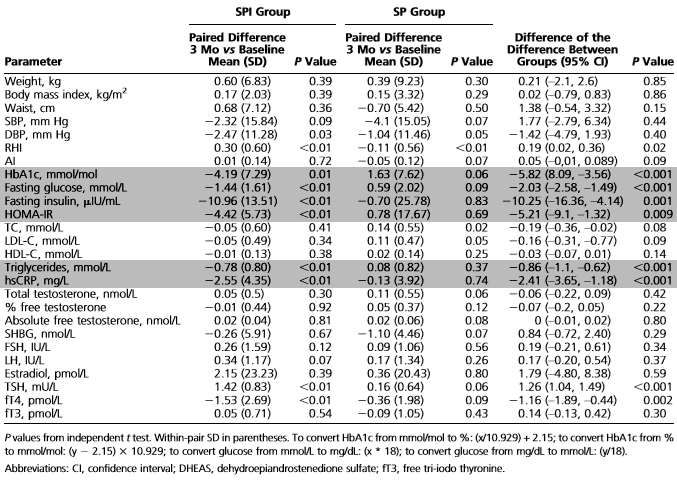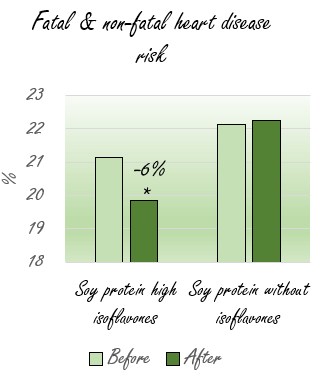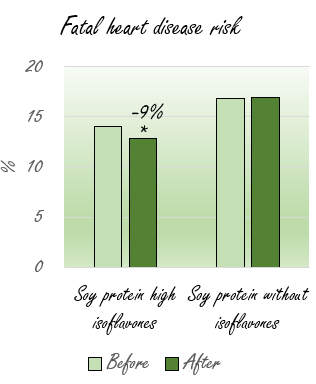|
Soya protein makes men healthier, not less masculine
According to a small but - at least on the web - clearly visible group of activists, soya is pure aspartame. According to these soyaphobes, soy consumption will make men's testosterone levels plummet, for example. That is quite a statement, and so the British government funded an experiment in which men, who already had low testosterone levels, were given soy with extra hormone-disrupting substances for three months every day.
Study
Endocrinologists from Hull York Medical School divided two hundred men with type-2 diabetes and a testosterone level of less than 12 nanomoles per liter into 2 groups. One group received 15 grams of soy protein with 66 milligrams of isoflavones [SPI] every day, the other half received soy protein without isoflavones [SP]. That concentration of isoflavones is on the high side. If you eat ordinary soy products, you need 20-30 grams of soy protein to get so many isoflavones.
Isoflavones from soya have an anti-estrogenic effect, but according to the soyaphobic movement they would feminize men. Yes, that's weird. But in the wondrous world of soyaphobes such a thought is not unplausible.
Results
When the 3 months had passed, the men's testosterone levels had not changed. However, their sensitivity to insulin had increased and the concentration of the inflammatory factor CRP had gone down.
Click on the figure below for a readable version.

Based on these changing blood values, the researchers were able to calculate that supplementation with high-isoflavone soya protein decreased the risk of cardiovascular disease.


Supplementation with isoflavone-rich soy protein improved the men's cardiovascular health. On the other hand, the concentration of the inactive thyroid hormone T4 in the men's blood declined. This was without metabolic consequences, because the concentration of active thyroid hormone T3 remained stable. But men with a low functioning thyroid gland may be better of without high-isoflavone soy proteins.
Conclusion
"In conclusion, soy protein with and without 66 mg isoflavone per day for 3 months did not have an effect on testosterone levels in men with type-2 diabetes, confirming its safety", the researchers write.
"In addition, there were substantial improvements in both glycemic control and cardiovascular risk markers, including [...] triglycerides, and hsCRP. These were reflected in a significant improvement in the calculated coronary heart disease risk with soy protein with isoflavones supplementation, whereas there were no changes seen with soy protein without isoflavones supplementation."
"However, there was an important increase in TSH with a reduction in free T4 after high-dose isoflavone in combination with soy protein without isoflavones supplementation, suggesting a potential adverse effect of high-dose isoflavone soy on the thyroid."
Source:
J Clin Endocrinol Metab. 2017 Feb 1;102(2):425-33.
More:
Hybrid protein shake lowers estradiol 11.06.2011
Soya protein reduces androgen's side effects, leaves anabolic effect intact 13.03.2011
Metastudy: soya does not lower men's testosterone level 27.07.2009
Archives:
Soya Protein & Isoflavones
Cardiovascular Health
Plant Proteins
|







